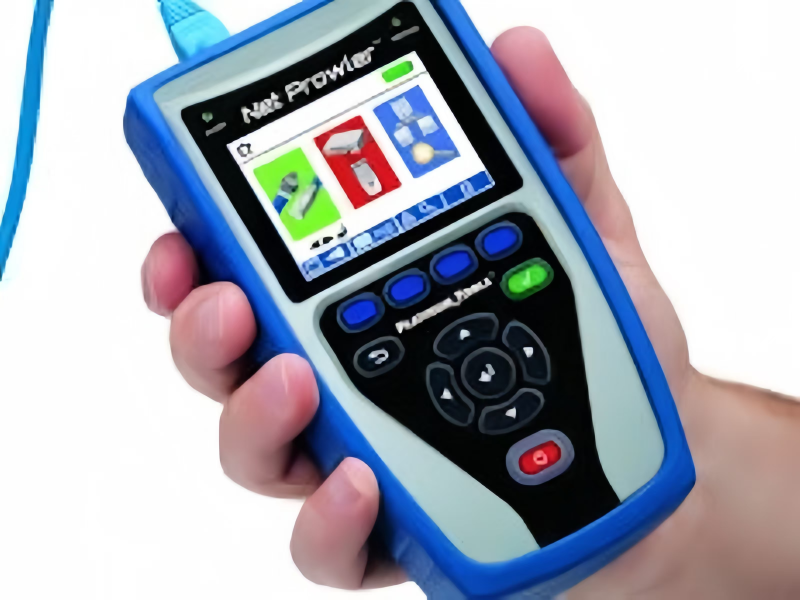- A network cable tester is a specialised tool that network technicians rely on to assess the functionality and integrity of network cabling.
- Its primary purpose is to verify the physical connections and wiring within a network infrastructure, ensuring proper installation for optimal data transmission.
In the world of network infrastructure, ensuring that your cables are functioning correctly is crucial for maintaining a reliable and efficient network. This is where a network cable tester comes into play. In this blog, we’ll explore what network cable testers are, how they work, and why they are essential for anyone involved in network installation or maintenance.
What is a network cable tester
A network cable tester is a diagnostic tool used to verify the integrity and functionality of network cables. It checks various parameters of the cables to ensure they meet the required standards for performance and connectivity. Network cable testers are essential for identifying issues in cabling that could affect network performance, such as connectivity problems, signal loss, or incorrect wiring.
The tester consists of a main unit and a remote unit. The main unit is connected to one end of the cable, and the remote unit is connected to the other end. The tester sends signals through the cable and measures various parameters. This includes checking for continuity, verifying pinouts, and identifying faults such as shorts, opens, or miswiring.
Also read: How IPTP Networks overcame Red Sea cable crisis with terrestrial solutions
3 types of network cable testers
- Basic cable testers: Primarily test whether a cable is properly connected and whether signals are being transmitted correctly. Simple models often include basic LEDs or display indicators to show if the cable is functioning or if there are issues such as open circuits or short circuits.
- Advanced cable testers: It provides a more detailed analysis of cable performance, including signal quality and network standards compliance. It has digital displays, graphical interfaces, and the ability to test cable length, signal attenuation, and crosstalk. Some advanced testers also support testing of different cable types and network standards.
- Network certification testers: Measure and certify that cables meet specific performance standards required for network installations. It provides in-depth analysis and certification for network standards such as Cat 5e, Cat 6, Cat 6a, and Cat 7. These testers are often used by professionals to ensure that installations comply with industry standards.
Also read: Singtel unveils Southeast Asia’s first quantum-safe network
Key functions of a network cable tester
Continuity testing: Ensures that the cable is properly connected from end to end and that there are no breaks in the wire.
Pinout verification: Check that the cable’s wiring matches the standard pinout configuration, which is crucial for proper data transmission.
Fault detection: Identifies issues such as short circuits, open circuits, and miswiring, which can cause connectivity problems or degraded performance.
Signal quality testing: Advanced testers can assess the quality of the signal transmitted through the cable, measuring parameters like attenuation and crosstalk.
A network cable tester is an invaluable tool for anyone involved in network installation, maintenance, or troubleshooting. By ensuring that cables are properly connected and meet performance standards, these testers help maintain a reliable and efficient network infrastructure.

